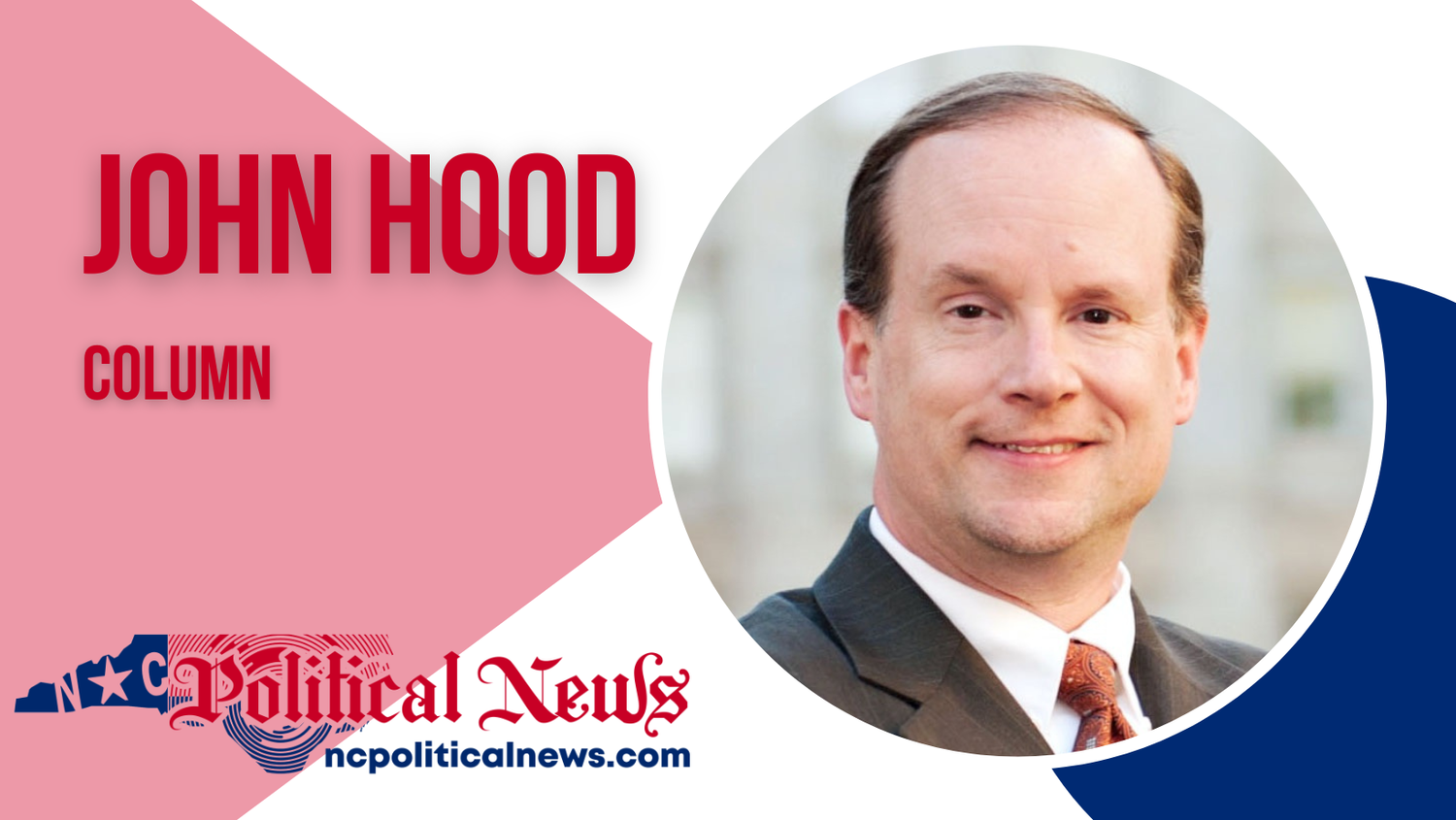John Hood: NC Campuses Rank High on Speech
RALEIGH — As recently as 2015, nearly 60% of Americans told Gallup that they had “a great deal” or “quite a lot” of confidence in U.S. colleges and universities as a whole. Today, just 36% of respondents agree — not much different from the shares who say they have only “some” confidence (32%) and very little or none (32%).
And while respect for higher education has plummeted among Republicans, there have also been double-digit drops in confidence among independents and Democrats.
Contributing to American academia’s reputational decline have been highly publicized and egregious episodes of illiberalism on campus, including institutional discrimination against dissenting voices and destructive riots by antisemites and other extremists.
Not all campuses are as poorly led as the likes of Harvard and Columbia, however. In our own state, for example, free speech is the norm, not the exception, at many of our public and private campuses.
According to the latest rankings by the Foundation for Individual Rights and Expression (FIRE), North Carolina State University ranks seventh in the nation for its protection of student free speech and open inquiry. Instances of student self-censorship or intrusions on academic freedom are relatively rare at our state’s largest public university. And FIRE gives N.C. State a “green light” rating for its written policies defining and protecting free speech.
FIRE’s rankings reflect 14 components drawn from answers to student surveys. Half of them assess student perceptions of the speech climate on campus. The other half assess behavior by administrators, faculty, and students regarding free expression.
Other institutions ranking in the top quartile are the University of North Carolina at Charlotte (ninth out of 257 ranked or flagged campuses), East Carolina University (13th), UNC-Greensboro (22nd), Appalachian State University (24th), Duke University (27th), and UNC-Chapel Hill (62nd). Two other campuses, Wake Forest University (78th) and Davidson College (127th), rank in the second quartile.
What’s more, you’ll find no North Carolina-based institutions at or near the bottom of the list, which is dominated by “elite” universities such as Harvard, Columbia, Pennsylvania, Syracuse, and NYU, along with several religious institutions that make no pretense of protecting free speech and academic freedom to their fullest extent.
Now, to say that many of our public and private institutions are comparatively protective of freedom, mutual respect, and the rule of law is not to say there’s no room for improvement. In addition to reporting the overall survey results, the FIRE study also presents disturbing quotes from current and former students.
“It’s scary to express my opinion in public,” said one UNC-Chapel Hill student. “In class,” said a UNCC student, “discussions surrounding political opinions tend not to be handled very well. People don’t have open enough minds to hear another perspective so I would rather just not say anything.”
Another respondent, a student at N.C. State, said that “as a Republican, it’s hard for me to express my views to people that I know disagree with me. I feel like this goes both ways but it seems like if someone disagrees with you then you’re automatically thrown into a label, such as being racist, when in reality that’s just not the case at all.”
No matter how strong an institution’s formal or informal protections of free speech may be, some students, faculty, and visitors may feel uncomfortable expressing or criticizing certain views in public. Having taught at Duke for many years myself, I have no interest in setting unrealistic expectations or advocating impractical policies.
Nevertheless, I strongly believe that cultural norms play at least as important a role in fostering free speech and open inquiry on campus as written procedures do. To the extent that university leaders model good behavior — maintaining institutional neutrality about political subjects while encouraging robust discussion on campus among individuals speaking for themselves — they help to shape those norms.
The motto of my alma mater, Carolina, is Lux Libertas, Latin for “Light and Liberty.” For academia to regain public confidence, it must champion these core principles.
John Hood is a John Locke Foundation board member. His latest books, Mountain Folk and Forest Folk, combine epic fantasy with early American history (FolkloreCycle.com).
Are you tired of being bombarded by paywalls and pop-up ads when trying to read the news? Do you believe that access to reliable political news should be free and accessible to everyone? Then we urge you to support NC Political News, a weekly electronic political news outlet.
NC Political News is committed to providing high-quality, unbiased political reporting with columnists from all political sides. Unlike other news outlets, NC Political News is free to read and supported by businesses who purchase ad space on our website and in our newsletter, which goes out Monday through Friday at 7:00 am. This means that readers like you can access the news without being asked to pay a cent or dealing with frustrating advertisements.
However, to continue providing this valuable service, NC Political News needs your support. If you believe in the importance of accessible, free news, we urge you to click the image below. Any amount of support is appreciated.
Together, we can keep the news free and help ensure our state stays informed and connected.




